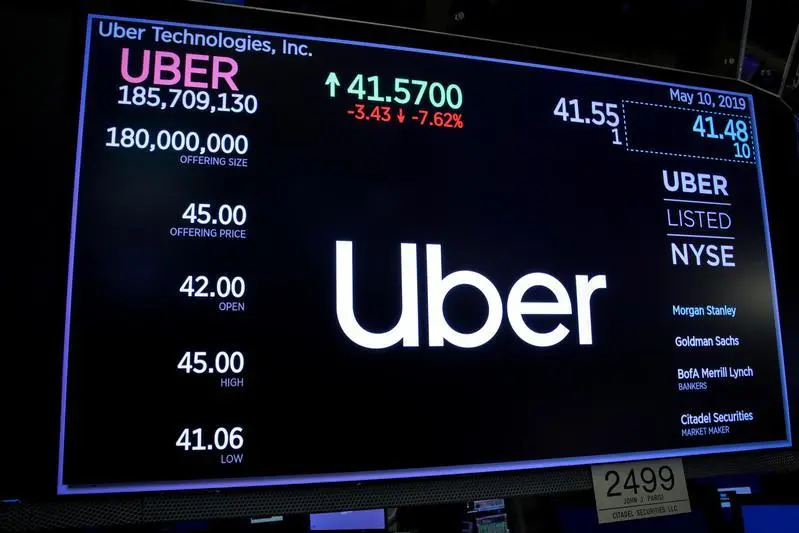PHOTO
SAN FRANCISCO - Uber Technologies and Grubhub may get a stomachache from all the deal fuss. A tie-up would create the top meal-delivery firm in major markets like New York, Boston and Chicago. U.S. federal watchdogs will be wary and lawmakers are already critical. Even if they agree, the companies have states’ attorneys general to worry about.
Lockdown orders have boosted demand for food-delivery services but it’s still a tough business. While Uber Eats revenue rose by 53% in the first quarter, the business is highly competitive, and margins have been worsening. The company’s Eats adjusted EBITDA was minus $313 million in the quarter. Grubhub had a net loss of $33 million.
A deal for $57 billion Uber to swallow $5.3 billion Grubhub could be valued around $6 billion, according to the Wall Street Journal. It would help eliminate competition for drivers and restaurant contracts. But that in turn causes regulatory heartburn.
The companies have already been in the crosshairs of local officials, which has worsened during the pandemic as food delivery provides an essential service. On Wednesday, the New York City Council approved a rule capping fees that Grubhub and its rivals could charge.
Regulators might be concerned that a deal would hand the new company too much control over fees. A combined firm would have 80% market share in meal deliveries in New York City, 70% control in Boston and 60% of sales in Chicago. Some lawmakers have already criticized the deal, including Democratic Congressman David Cicilline, head of the U.S. House antitrust subcommittee, who panned it as “a new low in pandemic profiteering.”
Even if federal authorities are convinced a deal should go through, the companies may have to provide additional concessions, like forcing them to let go of restaurant partners or limit fees charged to restaurants and consumers.
Then state attorneys general are waiting in the wings. They’ve been active in other deals, suing to block Sprint’s merger with T-Mobile US even after Washington regulators approved it. That deal eventually went through, but only with additional compromises, like more low-cost mobile plans and job promises.
Uber’s budding D.C. office can guide them – it spent more than $2 million on lobbying for the first time in 2018, when it hired a former aide to U.S. House Minority Leader Kevin McCarthy to oversee its efforts. But Grubhub doesn’t have a significant federal lobbying operation. And the states, too, might present their own case of indigestion.
CONTEXT NEWS
- Uber Technologies and Grubhub are discussing an all stock deal that would value the second-largest meal-delivery firm at around $6 billion, the Wall Street Journal reported on May 13. That reflects a stock exchange ratio of 1.9 Uber shares for each Grubhub share.
(Editing by Lauren Silva Laughlin and Amanda Gomez)
© Reuters News 2020





















